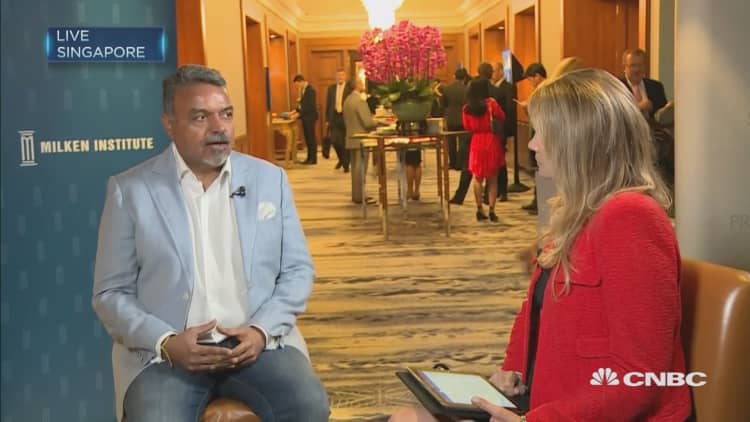
Wellness is a huge opportunity in the luxury sector and Asia is uniquely positioned to benefit, according to one of the world's largest consumer-oriented investment groups.
"Looking after yourself is the new luxury ... and Asia has a lot to contribute on that front," Ravi Thakran, managing partner and chairman of L Catterton, told CNBC on the sidelines of the Milken Institute Asia Summit.
Indeed, more middle-class consumers are increasingly splurging more on wellness than expensive items in a sharp spending shift, with market research firm Euromonitor anticipating health-focused purchases to eclipse traditional luxury goods in a short time.
Asians across the spectrum boast a deep relationship with natural practices, from traditional Chinese medicine to Ayurveda to ginseng, Thakran continued. "We can teach the world a lot from Asia."
The region's centuries-old obsession with health has produced some of the longest life expectancies, particularly in Japan, Singapore, and South Korea, according to the United Nations' latest World Happiness Report.
"Much of Asian heritage is dominated by nature," Thakran said. "Japan is one society that lives in the most harmony with nature, whether it's waste recycling or using less means."
When asked to name one key name in the wellness space, Thakran pointed to manuka honey. Native to New Zealand, the honey is widely regarded as alternative medicine and commands high prices.
"In five-10 years, it won't be possible to sell products without conveying the right message of sustainability," Thakran said. "Doing good can be very profitable as well."
A devout believer in ethical finance, the Singapore-based investor said he believes environmental norms should be applied across private equity. Those in the industry are becoming "custodians of society at large," he said, acknowledging that most PE companies have progressed on social factors such as gender equality.
L Catterton lives up to that ideology, he noted. "Before investing, we do something called a smell test — it's a value alignment test across a wide spectrum of factors, such as ethics."

